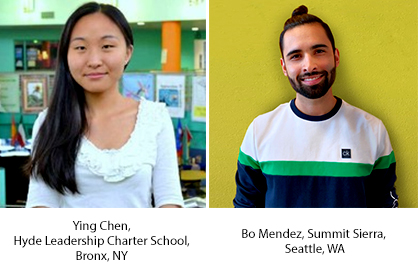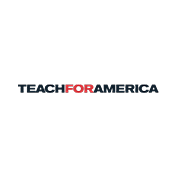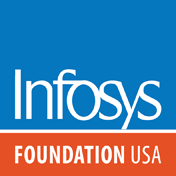Pathfinders Summer Institute Teachers Spotlight: Bo Mendez and Ying Chen
December 07, 2019
From July 14th – July 19th over 400 K-12 public school teachers from across the nation will gather at the University of Indiana Bloomington for a week of in-person professional development in computer science and maker education. Representing a diverse range of schools and districts, these teachers will have the opportunity to gain new skills to bring back to their students in the fall.
Infosys Foundation USA has partnered with Teach For America (TFA) to provide teachers in under-resourced schools with training in computational thinking. A small cohort of TFA teachers will be attending the Pathfinders Summer Institute this year. We sat down with two of them, Bo Mendez and Ying Chen, to learn a little more about their background and what they are hoping to gain next week.
You can follow the Pathfinders Summer Institute all week on twitter @InfyFoundation #InfyPathfinders.

Tell us about yourself
Bo Mendez: My name is Bo Mendez, and I am from Othello, WA. After completing my degrees in music and mathematics education, I joined TFA and starting teaching math at Decatur High School in Federal Way, WA. I taught there for two years, until I joined a new school, Summit Public Schools: Sierra, where I currently teach music and computer science. I also began a four-year journey with my then freshman mentor group the Bo-Ties. This coming year will be my sixth-year teaching, and I couldn’t be more excited to graduate them in the spring and work towards 100% college acceptance for the cohort.
Ying Chen: I’m originally from China. Currently, I am living in Brooklyn, New York. After graduating from college with a major in psychology, I joined Teach for America and started teaching various 9-12 science courses in a South Bronx high school for 5 years.
Why do you teach? What makes you excited about being in the classroom?
Bo: I teach because students deserve love. I believe in teaching the whole child, which is why I joined my current school, Sierra, and why I take opportunities to show students that I love them. I know that the most vulnerable students, those who have been marginalized by society, or those who have been hurt by a loss, abuse, or other trauma, need a lot of love all the time. I am excited to enter the classroom because I know that at the end of the day, these students will walk away knowing that someone cares about them and their success, and wants to help them develop and work toward their dreams.
Ying: I teach to not only provide all students with an equal opportunity to excellent education, but also to provide them with an access point to develop and practice the 21st century skills for a career of their interest. The joy of conquering a new task or difficult assignment on the students’ face is what excites me about teaching every day.
Why are you passionate about CS education? How do you currently use CS in the classroom?
Bo: CS knowledge is a direct gateway to the future. I have no idea what new jobs will be created in 10 years, but I do know that it is our job as a community of learners to be prepared for the future, and my classes (the community of learners) have goals that align with this aspiration. Because of this reality, I believe every student should have the exposure to the topics of computer science, if not only to grapple with the problems and think critically. CS challenges learners to assess problems, find creative solutions, and execute those strategies in an iterative process. We are practicing transferable skills that build learners who can solve problems.
Ying: CS education is very important in the world that we live in today because our world revolves around technology and critical skills that are embedded in the CS education. I value CS education as not different from the core subjects that we teach at school because the students need to develop and practice the critical skills and knowledge from the CS education in order to become successful in a competitive market. I currently co-teach the computer science classes in my school and am planning on starting a computer science after school club to foster student’s interests.
What has been your most meaningful teaching experience?
Bo: I’ve had the honor of working with a cohort of students, my mentor group, for the past three years. Over this time, I have witnessed their challenges and successes in and out of school, and through it all, I’ve had the chance to work with my mentees to press on. The most meaningful experiences in my career have come from interactions with my mentees. At the end of the year, I had a chance to support one of my mentees who is homeless in her transition to her new shelter. In the process, she was having trouble keeping up with school work, and through continuous conversations and goal-setting, she finished her junior year by making the effort to come to summer school, and is now proudly moving on to senior year. These initiatives can change a student’s trajectory for their entire life, and I am inspired by the moments when students realize their potential and see themselves as successful, and it keeps me motivated to teach.
Ying: One of my most memorable teaching experiences was planning and supporting students with their science fair project. Students choose a science experiment that interest them, conduct research on how to execute the project, and conduct the experiment under supervision. The most meaningful part of this project was to engage students to be the self-agent that drives their own learning process with the guidance from the teacher.
Which course are you signed up for at the Pathfinders Summer Institute?
Bo: I am signed up for the computational making course. I can’t wait to learn about the creative ways my students can explore computation, and how they may be able to “tinker” with the topic to engage in a more hands-on way.
Ying: I signed up for the computational making course. I chose this course hoping to learn and practice the hands-on problem-solving activities to bring back into my class. I have found that hands-on problem-solving activities can engage more students to be interested in CS and I am willing to embed more of these hands-on activities into my lesson plans next year.
What else do you hope to gain from Pathfinders this summer?
Bo: In addition to the rich learning experience, I hope to come away with some connections to the CS community. I would love to be able to reach out on a personal level to another teacher and ask a question, and offer support in return.
Ying: I am hoping to gain some connections this summer so that we can build a community of support when planning for the lessons next year.



